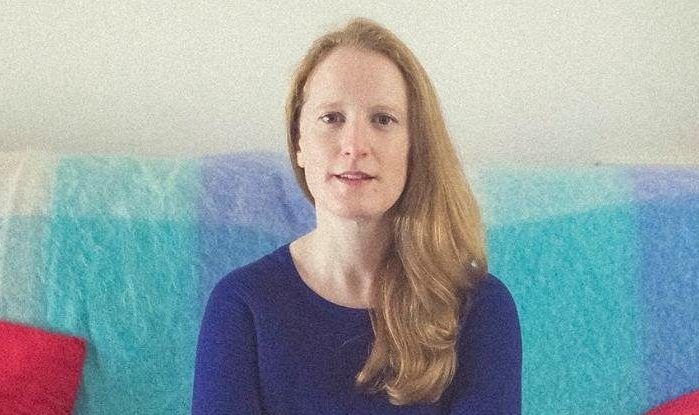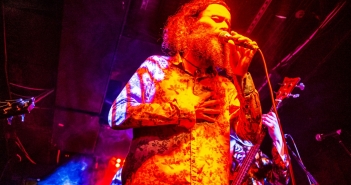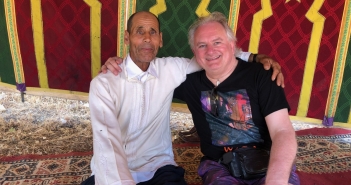Listening is a powerful skill. It’s one of the most important things you can learn in life. There are many different ways to listen and many different things to listen to, such as music, thoughts, emotions, facts, and opinions. For as long as I can remember I’ve always been trying to listen just that little bit closer.
I developed a hyper-awareness of sound in particular during my first years of piano tuition. One of my teachers was always playing random pieces of music off the top of her head as I arrived for my lesson. I loved to hear her play like this and longed to be able to do the same. I quickly realised that it was possible to play all the popular songs of the day just by sitting down and listening. The most important lesson I ever learnt and have never forgotten was when I was about 11 years old.
I brought a piece of music on cassette tape to my lesson for the same teacher to listen to and teach me. It may have been Bohemian Rhapsody or some other song with an epic piano part. She had a quick listen and told me to go home and figure it out for myself. This baffled me at first but I thought I’d give it a try. I went home and listened, and then really listened, and I figured out how to play the piece… note for note. What a revelation! From then on I took on everything from Billy Joel to Guns and Roses and became obsessed with learning these piano parts exactly as they were played on the recording. I didn’t just play something similar, I had to have every note correct.
As a teenager I had a deep attachment to the piano and had a pact with myself that I had to play every day or the spell would be broken. Even playing just a few notes would suffice. I generally practiced for a couple of hours every day and even more once I got to university. Piano was a massive part of my life. I also drew a lot and developed a love of black and white photography, so between art, photography and music I didn’t have much time for anything else. I was lucky that I went to a school that somehow allowed me to focus on all three subjects. All this has continued to feed into my compositional life, which only began in my early twenties when I did a Master’s in Music and Media Technologies at Trinity College Dublin (graduating class of 2000).
Having broken the piano spell and replaced it with electronic music I quickly turned my attention to found sounds and musique concrète. Using sounds from everyday life to create vast soundscapes further broadened and deepened my listening experience. Every sound around me became music! Sounds that other people tried to block out while going about their daily business became the building blocks of my compositions. Being able to transform them even further through various electronic processes was mind-blowing to me and incredibly exciting.
For many years I travelled around with a portable minidisc recorder and a small microphone recording anything and everything of interest. Machinery and transport fascinated me the most, especially when I started to pull these sounds apart to see what they would reveal. Electronic music opened my ears to so many incredible compositional possibilities during that time. The idea of sculpting and shaping sounds that had never been heard before was infinitely satisfying.
In a world where there are so many types of music and ways of approaching the arrangement of sonic elements in time, it has always been a challenge to come up with fresh ideas. Classical music was built on a very specific musical language. Composers who understood the power of this language and how to manipulate it most effectively managed to develop their own voice and have stood the test of time. These rules began to be broken down and abandoned at the beginning of the twentieth century. The strict rules of harmony and counterpoint were challenged and new ideas and concepts were introduced. From then on it was a free-for-all to some extent and now you can literally write whatever you want.
This makes things more challenging in many ways as you have nothing to hold on to. You can derive ideas from other works of course but creating a unique soundworld is very ambitious.
Delving into the world of musique concrète gave me a very important and lifelong obsession with timbre. Through working with found sounds I started to explore acoustic instruments for their sonic possibilities. Over the years I have collaborated very closely with professional musicians to explore their instruments and listen deeply to the intricacies of timbre that can be drawn from them.
Through the use of microphones I have built large libraries of sounds from every instrumentalist I have worked with and have explored their timbre even more by layering recordings of certain sounds together to make delicious textures. By using recordings you can enhance even the tiniest sound just by amplifying it within the mix to give you almost a macro-engagement with sound. This process became the basis of a PhD in composition that I completed at the University of York in 2009.
The endless combinations of sonic possibilities in this world will continue to inspire my life and work. Although living the life of an artist has lead me down quite an unconventional path, and can be a struggle at times, I wouldn’t change it for anything. I will continue to listen deeply and I encourage you to do the same.
For more of Judith’s work see her:
Official website: www.judithring.com
Soundcloud: www.soundcloud.com/judith-ring
YouTube: https://www.youtube.com/channel/UC1vVA69QkacFPkOPLdiILOQ?disable_polymer=true
Judith is currently writing pieces for flautist Lina Andonovska and drummer Matthew Jacobson’s duo
SlapBang and a piece for the RTÉ National Symphony Orchestra as part of The Contemporary Music
Centre’s composer lab.




